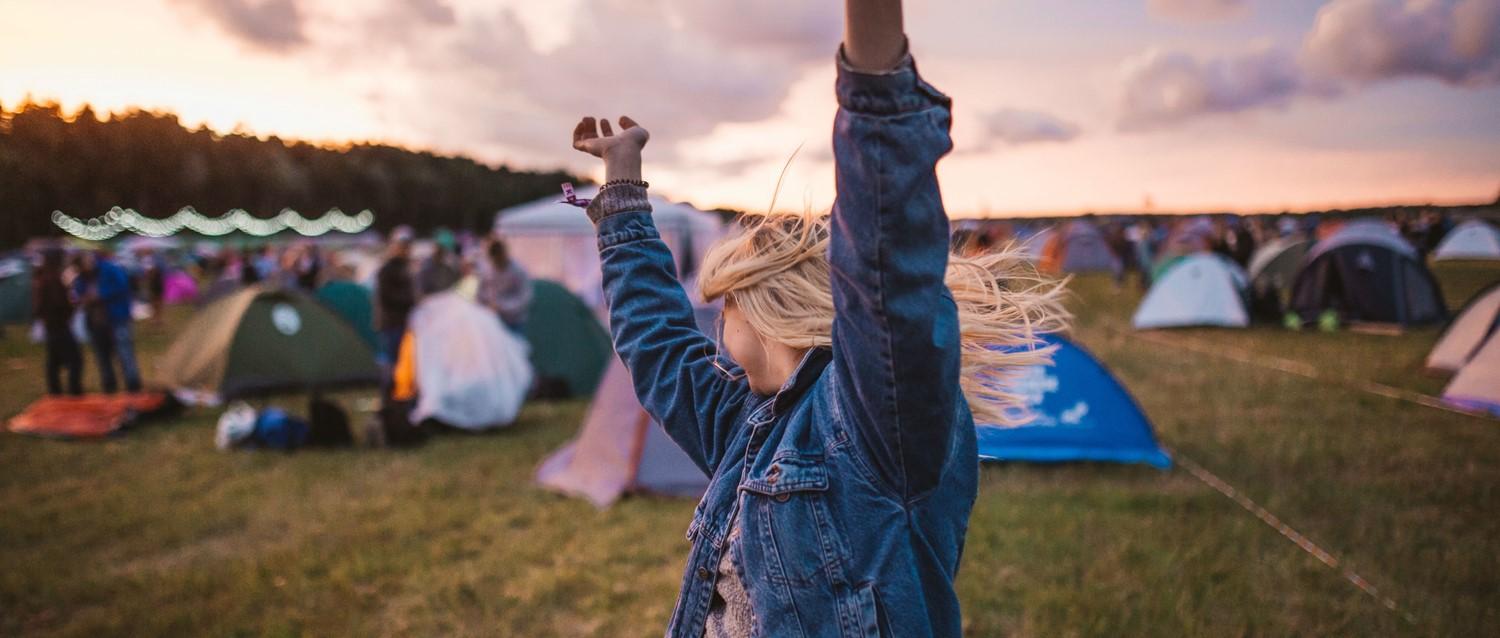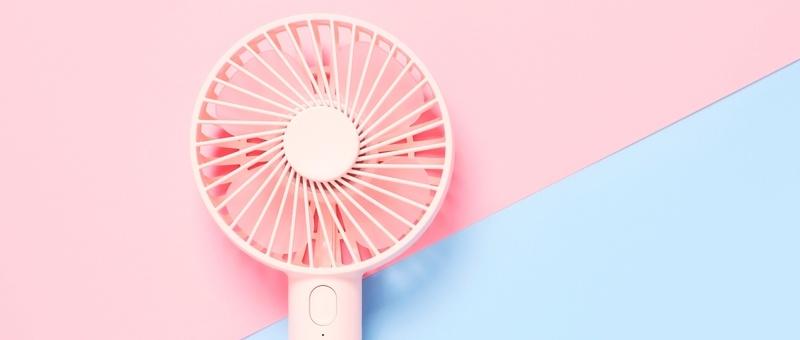
Comment rester en bonne santé lors d'un festival de musique
Révision par les pairs : Dr Krishna Vakharia, MRCGPDernière mise à jour par Victoria RawDernière mise à jour : 16 mai 2024
- TéléchargerTélécharger
- Partager
La saison des festivals de musique d'été est à nos portes. Si ces événements en plein air prolongés nous permettent d'échapper à nos soucis et à notre routine quotidienne, ils peuvent également entraîner des problèmes de santé courants. Toutefois, avec un peu d'anticipation, vos souvenirs pourraient se résumer à la musique, et non au temps passé sous la tente médicale.
Dans cet article :
Here are seven top tips to help you have a happy - and healthy - music festival season:
Poursuivre la lecture ci-dessous
1. Stay hydrated
Mild dehydration can cause headaches, poor concentration, tiredness and light-headedness. If you're more severely dehydrated, you can experience palpitations, breathing problems, dizziness, confusion or even loss of consciousness.
The European Food Standards Agency (EFSA) recommends that for the average adult, fluid intake should be about 1.5 litres a day for women and 2 litres for men. In addition to that, it's recommended that another half litre of fluid come from foods. However, if you're exercising you may lose as much as a litre of fluid an hour, although that varies dramatically depending on how energetically you're dancing, how much you sweat and how hot it is.
Do be aware that, while tea and coffee in moderation can contribute to your fluid intake, all alcohol is dehydrating. As a rule of thumb, if your urine looks dark rather than pale straw-coloured, you need more fluid.
And while you may think it's impossible to drink too much water, there is a rare but serious complication of fluid overload, called hyponatraemia. Some recreational drugs can make you more prone to this.
Choix des patients pour Les conditions environnementales

Santé générale et mode de vie
Comment mieux dormir à la chaleur
It can feel impossible to get a good night’s sleep when it's hot. You can't get comfortable when you're too hot, which can make you feel even more tired and lethargic the next day. So how can you sleep better when the temperature soars?
par Lawrence Higgins

Santé générale et mode de vie
Épuisement par la chaleur et coup de chaleur
Les risques d'une exposition excessive de la peau au soleil sont bien connus. L'excès de soleil augmente le risque de cancer de la peau, et la brûlure présente un risque particulièrement élevé de mélanome malin. Mais à court terme, l'excès de chaleur entraîne également un risque d'épuisement par la chaleur qui, s'il n'est pas traité, peut conduire à un coup de chaleur potentiellement mortel.
par le Dr Doug McKechnie, MRCGP
2. Rest and recharge
You may want to make the most of every minute at a festival. But being overtired can take all the fun out of it - you're hardly going to enjoy yourself if you have a headache and can't concentrate.
As with exercising, slow-burn carbohydrates can keep your energy levels up. You may think it will be easier to sleep amid the noise of a festival at night if you have alcohol on board, but you'd be mistaken. Being drunk may make it easier to get to sleep, but your sleep pattern will be disturbed and won't refresh you in the same way. You're also more likely to wake early (probably needing a trek to the communal loos) and find it difficult to get back to sleep.
Some people find napping during the day gives them an energy boost. For others it's a recipe for poor sleep the next night.
Poursuivre la lecture ci-dessous
3. Give yourself space
Music festivals are known for their large, energetic crowds. However, being hemmed in by so many partygoers can feel overwhelming for people with claustrophobia.
Claustrophobia is extremely frightening, and can come on in seconds. Alcohol and particularly recreational drugs make you much more prone to panic attacks and claustrophobia - just because other people are indulging doesn't make them a good idea.
Symptoms include an intense feeling of anxiety, thumping heart, shortness of breath, dry mouth, sweaty palms, feeling hot and cold, chest pain, feeling sick or dizzy and sometimes pins and needles in your hands and around your mouth.
In the short term, focusing on your breathing - taking very slow, deep breaths can help. Over-breathing (hyperventilation) is a natural response to very high adrenaline levels that accompany claustrophobia or panic attack. This makes you want to breathe rapidly, which in turn can result in light-headedness and dizziness from too much oxygen and too little carbon dioxide in the system. You may also want to get out of the situation as soon as possible.
However, be aware that avoiding a situation that causes symptoms of anxiety can make the problem worse in the long term, as you end up restricting your life more and more. If you suffer from regular panic attacks or claustrophobia, see your doctor about possible treatment.
4. Fuel up
The best festivals involve lots of dancing - and energetic dancing takes as much energy as marathon running.
Slow-burn carbohydrates are the body's preferred energy source during high-intensity activity - wholemeal pasta, potatoes and some fruit and vegetables are ideal. Protein helps to rebuild muscle as well as being one of the most effective forms of food for staving off hunger. White meat, fish, eggs and dairy products are great sources of protein. If you're vegan, think soy, quinoa, Quorn®, hummus or rice and beans.
Poursuivre la lecture ci-dessous
5. Protect your ears
Exposure to loud noise increases your chance of age-related hearing loss (presbyacusis) in later life. As far as the average festival-goer is concerned, old age seems a lifetime away. However, chances of developing this type of hearing loss increases as early as age 40.
Tinnitus, a distressing and persistent ringing in the ears, can be brought on by exposure even to short bursts of very loud noise. It's never too early to start protecting your ears from loud noise - earplugs are as essential a part of festival life as the tent and the spare supply of loo roll.
6. Keep safe in the sun
It can be easy to forget when you're having fun in the sun, but excess sun and heat exposure can be harmful to your body.
Sunburn is an obvious one - keep a hat to hand at all times, apply sunscreen regularly and don't give in to the temptation to go shirtless.
Heat exhaustion causes extreme tiredness, profuse sweating, light-headedness and being sick.
The solution is getting out of the heat, resting and drinking plenty of fluids. Heatstroke is a more serious complication - your body loses the ability to cool itself and becomes dangerously overheated. Symptoms of heatstroke include confusion, severe headache, dizziness or fainting, muscle cramps, intense thirst and rapid shallow breathing. This is always a medical emergency.
7. Look after your feet
Many people suffer from swollen legs. For those with long-term health problems, this can be a warning sign of heart failure. But all too often it's caused by sitting with the legs down for long periods - like on a long flight. A similar (although usually milder) issue arises if you stand still for too long.
Standing still for too long means you don't use the muscle pumps in your calves that normally help pump blood around the body and back to the heart. Since fluid has to battle against gravity to get back up the legs when you're standing, this can lead to fluid accumulating, causing tired, achy and swollen lower legs.
There are two obvious solutions:
Keep your muscle pumps working by exercising your legs - either by walking or dancing or even by tensing the calf muscles regularly when you're standing or walking up and down on the spot.
Use gravity to get the fluid out of the legs - this involves keeping your legs up, ideally above the level of your heart. Lying flat on the ground with your legs propped on a pillow - or a rucksack - will help relieve the swelling and aching.
Historique de l'article
Les informations contenues dans cette page ont été évaluées par des cliniciens qualifiés.
Prochaine révision prévue : 16 mai 2027
16 mai 2024 | Dernière version
3 Jul 2018 | Originally published
Auteur: :
Dr Sarah Jarvis MBE, FRCGP

Demandez, partagez, connectez-vous.
Parcourez les discussions, posez des questions et partagez vos expériences sur des centaines de sujets liés à la santé.

Vous ne vous sentez pas bien ?
Évaluez gratuitement vos symptômes en ligne